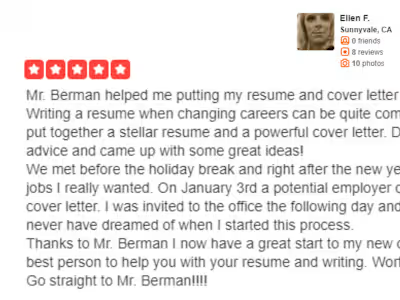Stellar Statements Secure Admission to Harvard Graduate Program
Problem
Like many ambitious people all over the world, Susan (not her real name) had long dreamed of one day attending Harvard University. This wasn’t feasible for her as an undergraduate: she didn’t have the grades or access to anyone who could have given her the assistance she would have needed. It wasn’t feasible for her first graduate (master’s) degree program, either. But her dream lived on, undiminished. When she decided to pursue a second master’s degree, a mutual friend referred her to me.
In the context of her application to Harvard, Susan had several major challenges. Her grades after high school were perfectly good (almost all As) but she was weak in terms of activities, awards, honors, internships/employment experience and standardized test scores (on the Analytical Writing section, for example, she had scored only in the 54th percentile). The schools she had attended were quite decent but not the kind of Ivy League “feeder” schools from which most accepted applicants to Harvard come.
With the possible exception of Harvard Extension School (HES), admission to all degree programs at Harvard is ultra-competitive. How can someone with such a relatively undistinguished record stand a chance of admission? That was the problem Susan faced.
Solution
In some cases, when sufficient time is available, there are a variety of solutions — or possibly a combination thereof. Susan did not have the luxury of the time that most of these solutions involve, however. The only one available to her was to do a stellar job with her application collateral: her essay responses to a series of prompts, in particular.
In this case, for Harvard’s Graduate School of Design (GSD), four essays were required. (Graduate and professional programs typically require one extensive personal statement — possibly in combination with other, shorter, essays — but this was one of the exceptions to the rule.)
There are several ways of approaching collaboration on these essays. Sometimes, I work with the applicant in tutorial mode, guiding her through all the steps: “deconstructing” the prompt, devising a thesis statement, building a framework and then creating the draft, followed by editing and revision. In this case, Susan came to me with drafts that she had created on her own, so the next step on my part was to review and assess them.
This case history will focus on one of those essays — in this case, essay number three — often known as the “contribution essay”: a statement as to how the applicant envisions herself making a contribution to the program or its community. The specific wording of the prompt was, “Please tell us (in a maximum of 300 words) what you might contribute to the GSD community.”
In response to Susan’s first draft, I offered the following comments:
First, most fundamentally, it does not “squarely” address the prompt (a critical failure).
Second, it involves substantial repetition (at least, overlap) of the contents of the second essay.
Third, in terms of CONTENT (ideas about how you might contribute), it seems that it’s mostly “stretching out” the same point about use of your background.
KEY POINT: Rather than simply rephrase or restate your background, ideally you want to give more specifics as to how you would contribute.
You could concisely summarize how your summer program experience positions you to make quality contributions but ideally, you want to give more specifics about HOW you would be contributing.
Maybe it would be helpful to review the various aspects and elements of the community. For example, maybe there are specific clubs or activities or events (or aspects of classes) that you are positioned by virtue of your background to contribute to.
My recommendation would be to CREATE A NEW FRAMEWORK/OUTLINE, figuring/planning out which content points you will be presenting. And only start writing after you have satisfied yourself about the framework.
Susan made several attempts at revision but ultimately decided to work with me in real-time tutorial mode, to rewrite the essay, the revised version of which is online here. Comparing it with the original, you can see that the difference is one of night and day, which was the same for her other essays.
Result
I was of course delighted when Susan informed me some three months later, in mid-March, that she had received an offer of admission from Harvard, as well as several other highly competitive programs to which she had applied. Unsurprisingly, she decided to accept the offer from Harvard.
What’s the big deal about getting a degree from Harvard? I’ll be the first to admit that profound learning can be done anywhere, that schools like Harvard are by no means the be-all and the end-all.
At the same time, there is persuasive evidence that students who attend more prestigious schools (whether at the undergraduate or graduate/professional level) tend to enjoy superior networking opportunities and better employment options — and they generally end up earning higher salaries. Also, elite schools, which are better endowed, spend about ten times more on their students than other schools do.
If you add up the lifetime value of the income differential, it will easily exceed the investment in tuition and related expenses (including application assistance!). On top of that, there is the emotional/psychic gratification, on the part of both students and parents, of having the pedigree associated with the graduate’s name, as well as benefits for future generations.
What ultimately helped obtain for Susan the desired outcome was the persuasiveness of her application collateral, in the sense of compelling and well-reasoned arguments for her candidacy.
THE SAME GUIDING PRINCIPLE PROBABLY APPLIES TO WHATEVER PROJECT YOU MAY HAVE IN MIND AT THIS TIME: Regardless of the nature of the project, success will hinge upon effective messaging — PERSUASION of your audience, in other words, into believing what you are telling them. That’s the name of the game. It’s what I do and why they pay me the big bucks, so to speak.
Like this project
Posted Mar 23, 2024
I helped an applicant to one of Harvard’s hyper-competitive programs rewrite her application essays, turning straw into gold and winning admission as a result.
Likes
0
Views
15








